Panel: Networking Cyber-physical Applications in a Data-centric World
Tarek Abdelzaher (Moderator), AzerBestavros, Jeff Burke, Sajal Das, and Jie Wu
It’s an exciting time for networking research! World data volume is growing at an accelerated pace, much of it is from embedded devices. The Internet of Things is becoming a reality. Smart cities are expected to grow, fed by millions of data points from multitudes of human and physical sources. Cyber-attacks grow more vicious, bringing down physical systems. Social networks are becoming ubiquitous offering information on physical things. The separation between cyber, physical, and social realms blurs. What does that all imply in terms of future challenges and emerging directions for networking research? This panel assembles some of the world leaders in the area to share their visions and opinions on the topic.
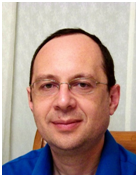
Tarek Abdelzaher(Moderator): Tarek Abdelzaher received his B.Sc. and M.Sc. degrees in Electrical and Computer Engineering from Ain Shams University, Cairo, Egypt, in 1990 and 1994 respectively. He received his Ph.D. from the University of Michigan in 1999 on Quality of Service Adaptation in Real-Time Systems. He has been an Assistant Professor at the University of Virginia, where he founded the Software Predictability Group. He is currently a Professor and Willett Faculty Scholar at the Department of Computer Science, the University of Illinois at Urbana Champaign. He has authored/coauthored more than 200 refereed publications in real-time computing, distributed systems, sensor networks, and control. He is an Editor-in-Chief of the Journal of Real-Time Systems, and has served as Associate Editor of the IEEE Transactions on Mobile Computing, IEEE Transactions on Parallel and Distributed Systems, IEEE Embedded Systems Letters, the ACM Transaction on Sensor Networks, and the Ad Hoc Networks Journal. He chaired (as Program or General Chair) several conferences in his area including RTAS, RTSS, IPSN, Sensys, DCoSS, ICDCS, and ICAC. Abdelzaher’s research interests lie broadly in understanding and influencing performance and temporal properties of networked embedded, social and software systems in the face of increasing complexity, distribution, and degree of interaction with an external physical environment. Tarek Abdelzaher is a recipient of the IEEE Outstanding Technical Achievement and Leadership Award in Real-time Systems (2012), the Xerox Award for Faculty Research (2011), as well as several best paper awards. He is a member of IEEE and ACM.
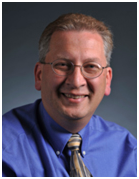
AzerBestavros: AzerBestavros is a Professor in the Computer Science Department at Boston University, which he joined in 1991 and chaired from 2000 to 2007. He is the Founding Director of the BU Hariri Institute for Computing, which was set up in 2010 to “create and sustain a community of scholars who believe in the transformative potential of computational perspectives in research and education.” He is the co-Chair of the Council on Educational Technology & Learning Innovation, which was set up in 2012 to develop BU’s strategy as it relates to leveraging on-line technology in on-campus, residential programs. AzerBestavros pursues research in the broad areas of networking and real-time embedded systems. His contributions include pioneering the web push content distribution model adopted years later by industry, seminal work on Internet traffic characterization, game-theoretic approaches to cloud resource management, and safety certification of networked systems and software. His research work yielded 4 issued patents, 2 startup companies, and hundreds of refereed papers. He received a number of awards for distinguished teaching, research, and service, including the ACM Sigmetrics Inaugural Test of Time Award for research “whose impact is still felt 10-15 years after its initial publication” and the United Methodist Scholar Teacher Award in recognition of “outstanding dedication and contributions to the learning arts and to the institution.” AzerBestavros serves as co-chair of the Research, Education, and Outreach Committee of the MGHPCC, and as board member of the Cloud Computing Caucus, a non-profit, non-partisan coalition of industry and key government stakeholders, focused on raising awareness and educating lawmakers and the public on issues associated with cloud computing. He is the former chair of the IEEE Computer Society TC on the Internet and served on the program committees and editorial boards of major computer science conferences and journals. AzerBestavros obtained his PhD in Computer Science in 1992 from Harvard University, under Thomas E. Cheatham, one of the “roots” of the academic genealogy of applied computer scientists.
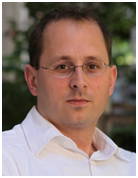
Jeff Burke: Jeff Burke is Assistant Dean for Technology and Innovation at the UCLA School of Theater, Film and Television (UCLA TFT), one of the world’s most prominent academic institutions for entertainment and performing arts education. Burke is a three-time UCLA alumnus (B.S., M.S., Electrical Engineering; M.F.A., Film, Television and Digital Media) who has produced, managed, programmed and designed experimental performances, short films, new genre art installations and new facility construction internationally for more than 15 years. Burke has been a faculty member since 2001 and today, in addition to his role developing technology and innovation strategy at TFT, is Co-PI and application team lead for the Named Data Networking project, a multi-campus effort supported by the National Science Foundation (NSF) and an international 25-member consortium to develop a future Internet architecture. In 2004, Burke co-founded UCLA TFT’s Center for Research in Engineering, Media and Performance (REMAP), a collaboration with the Henry Samueli School of Engineering and Applied Science, which combines research, artistic production and community engagement. At REMAP, Burke’s research has been supported by the NSF and NEA, Intel, Cisco, Trust for Mutual Understanding and the MacArthur Foundation, among others. From 2006-2012, he was area lead for participatory sensing at the NSF Center for Embedded Networked Sensing, helping to define a new application arena for mobile devices. In 2014, he received a three-year Google Focused Award on the “Future of Storytelling,” for work that will explore the intersection of storytelling and coding through research and production of original, interdisciplinary digital media works at UCLA TFT.
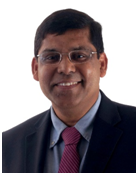
Sajal Das: Sajal K. Das, an IEEE Fellow, is the Chair of Computer Science Department and Daniel St. Clair Endowed Chair in Computer Science at the Missouri University of Science and Technology, Rolla. During 2008-2011, he served the US National Science Foundation as a Program Director in the Division of Computer Networks and Systems. Prior to 2013 he was a University Distinguished Scholar Professor of Computer Science and Engineering and founding director of the Center for Research in Wireless Mobility and Networking (CReWMaN) at the University of Texas at Arlington. His current research interests include theory and practice of wireless and sensor networks, mobile and pervasive computing, cyber-physical systems and smart environments including smart grid and smart healthcare, distributed and cloud computing, security and privacy, biological and social networks, applied graph theory and game theory. Dr. Das has published extensively in these areas with more than 600 research articles in high quality journals and refereed conference proceedings, and 51 invited book chapters. He coauthored four books ‘Smart Environments: Technology, Protocols, and Applications’ (2005), Handbook on Securing Cyber-Physical Critical Infrastructure: Foundations and Challenges (2012), Mobile Agents in Distributed Computing and Networking (2012), and Principles of Cyber-Physical Systems (2015). His h-index is 66 with more than 17,500 citations according to Google Scholar. Dr. Das holds 5 US patents and received 10 Best Paper Awards in prestigious conferences such ACM MobiCom’99, IEEE PerCom’06 and IEEE SmrtGridComm’12. He is also a recipient of numerous awards for teaching, mentoring and research including the IEEE Computer Society’s Technical Achievement Award for pioneering contributions to sensor networks and mobile computing, Lockheed Martin Teaching Excellence Award, and Graduate Dean’s Award of Excellence for mentoring doctoral students. Dr. Das is a frequent keynote speaker at international conferences and workshops. He serves as the Editor-in-Chief of the Pervasive and Mobile Computing journal, and as Associate Editor of IEEE Transactions on Mobile Computing, ACM Transactions on Sensor Networks, Journal of Parallel and Distributed Computing, and Journal of Peer to Peer Networking and Applications. Dr. Das co-founded international conferences like IEEE WoWMoM, IEEE PerCom, and ICDCN, and served on numerous conference committees as General Chair, Program Chair, or Program Committee member.
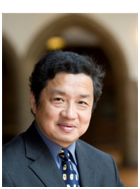
Jie Wu: Jie Wu is the chair and a Laura H. Carnell professor in the Department of Computer and Information Sciences at Temple University. Prior to joining Temple University, he was a program director at the National Science Foundation and was a Distinguished Professor at Florida Atlantic University. His current research interests include mobile computing and wireless networks, routing protocols, cloud and green computing, network trust and security, and social network applications. Dr. Wu regularly publishes in scholarly journals, conference proceedings, and books. He serves on several editorial boards, including IEEE Transactions on Service Computing and the Journal of Parallel and Distributed Computing. Dr. Wu was general co-chair/chair for IEEE MASS 2006, IEEE IPDPS 2008, IEEE ICDCS 2013, and ACM MobiHoc 2014, as well as program co-chair for IEEE INFOCOM 2011 and CCF CNCC 2013. He was an IEEE Computer Society Distinguished Visitor, ACM Distinguished Speaker, and chair for the IEEE Technical Committee on Distributed Processing (TCDP). Dr. Wu is a CCF Distinguished Speaker and a Fellow of the IEEE. He is the recipient of the 2011 China Computer Federation (CCF) Overseas Outstanding Achievement Award.
